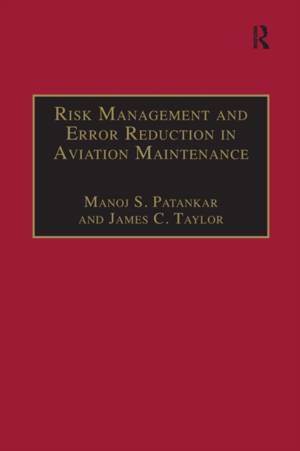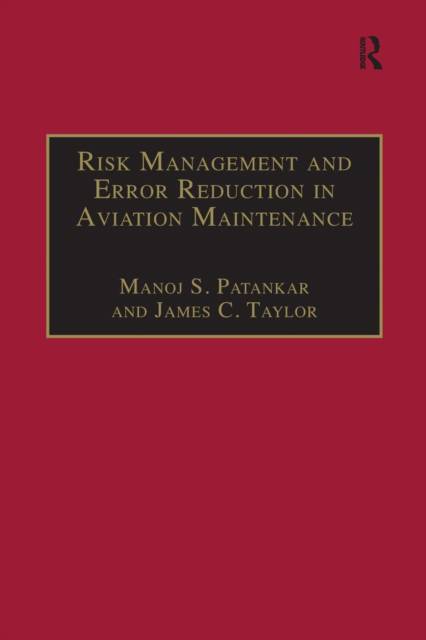
Je cadeautjes zeker op tijd in huis hebben voor de feestdagen? Kom langs in onze winkels en vind het perfecte geschenk!
- Afhalen na 1 uur in een winkel met voorraad
- Gratis thuislevering in België vanaf € 30
- Ruim aanbod met 7 miljoen producten
Je cadeautjes zeker op tijd in huis hebben voor de feestdagen? Kom langs in onze winkels en vind het perfecte geschenk!
- Afhalen na 1 uur in een winkel met voorraad
- Gratis thuislevering in België vanaf € 30
- Ruim aanbod met 7 miljoen producten
Zoeken
Risk Management and Error Reduction in Aviation Maintenance
Manoj S Patankar, James C Taylor
Paperback | Engels
€ 114,45
+ 228 punten
Uitvoering
Omschrijving
Although several U.S. and European airlines have started providing human factors training to their maintenance personnel, the academic community (some 300 academic programs in the United States and several others in Europe and Asia) has not yet started offering formal human factors education to maintenance students. The highly respected authors strongly believe in incorporating the human factors principles in aviation maintenance. This is the first of two volumes providing effective behavioural guidance on risk management in aviation maintenance for both the novice and the experienced maintenance personnel. Its practical guidelines assist both student and practising aviation maintenance personnel to develop sustainable safety culture. For the maintenance community it provides some theoretical discussion about the "Why?" for risk management and then focus on the 'How?' to implement a successful error reduction program. To help the maintenance community in making a strong case to their financial managers, the authors also discuss the return on investment for risk management programs. The issue of risk management is taken at two levels. First, it provides a basic awareness information to those who have little or no knowledge of maintenance human factors. Second, it provides a set of practical tools for the more experienced people so that they can be more effective in risk management and error recovery in their jobs. This invaluable book serves as a practical guide as well as an academic textbook. The book covers fundamental human factors principles from a risk management perspective. Upon reading this informative book, the audience will be able to apply the basic principles of risk management to aviation maintenance environment, and they will be able to use low-risk behaviours in their daily work.
Specificaties
Betrokkenen
- Auteur(s):
- Uitgeverij:
Inhoud
- Aantal bladzijden:
- 232
- Taal:
- Engels
Eigenschappen
- Productcode (EAN):
- 9781138246348
- Verschijningsdatum:
- 26/08/2016
- Uitvoering:
- Paperback
- Formaat:
- Trade paperback (VS)
- Afmetingen:
- 156 mm x 234 mm
- Gewicht:
- 331 g

Alleen bij Standaard Boekhandel
+ 228 punten op je klantenkaart van Standaard Boekhandel
Beoordelingen
We publiceren alleen reviews die voldoen aan de voorwaarden voor reviews. Bekijk onze voorwaarden voor reviews.









